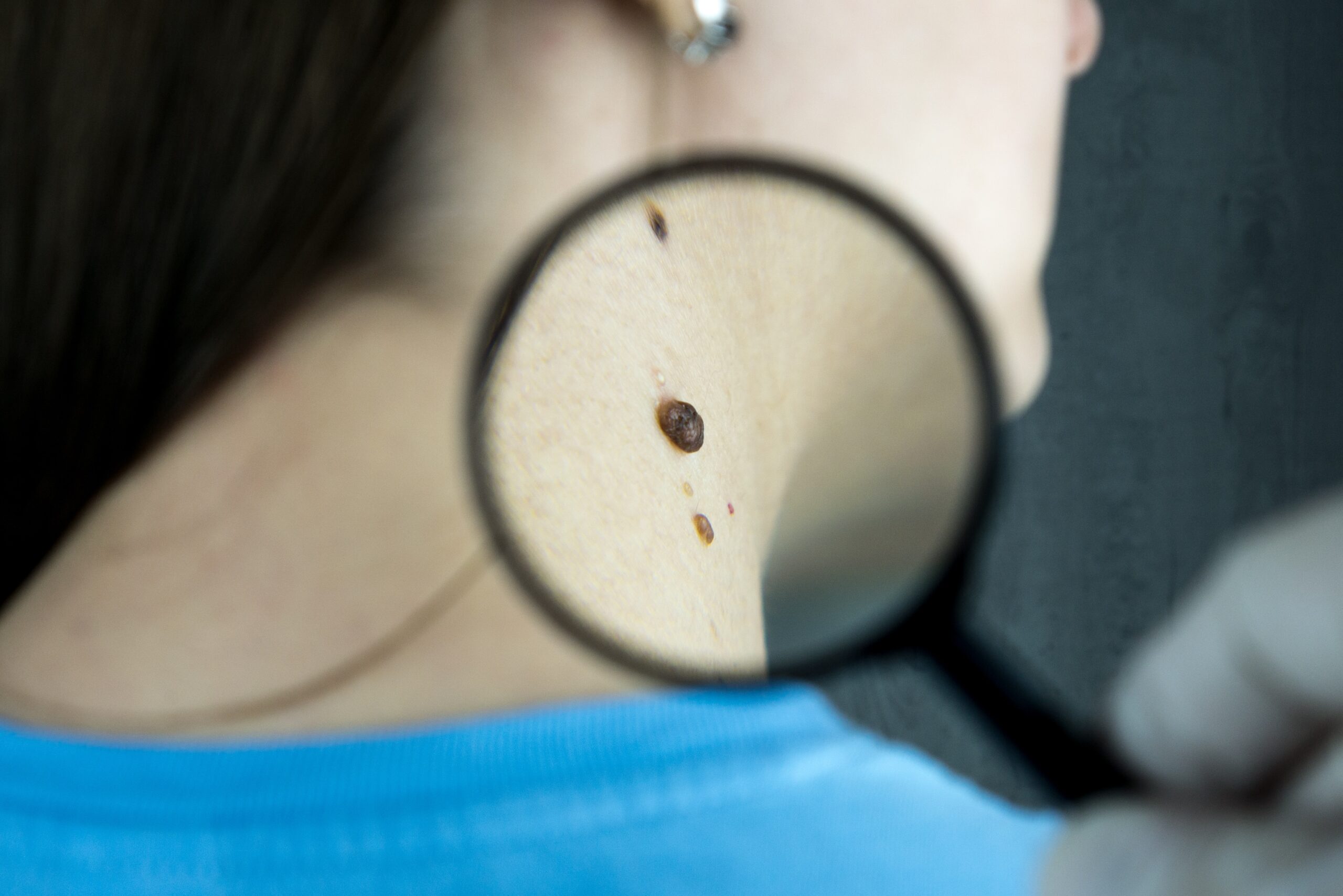Skin cancer is the most common cancer in the U.S., and it is becoming more prevalent. It can be detected early, but it can be difficult for the untrained observer to tell if you have skin cancer or not. A surgical dermatologist can help with skin cancer diagnosis and treatment to ensure you get the best treatment possible.
At Orah Dermatology and Cutaneous Surgery, we have years of experience in treating patients with skin cancers of all types—from melanoma to basal cell carcinoma—and have an excellent success rate in treating these types of cancers successfully so that our patients no longer have to deal with this disease in their lives going forward.
What is a Surgical Dermatologist?
A surgical, or procedural, dermatologist is a doctor who specializes in the diagnosis, treatment, and management of diseases of the skin using procedures. Surgical dermatologists are trained to perform all types of surgery on the skin, including Mohs micrographic surgery (Mohs), laser treatments, and other cosmetic procedures. They can also provide treatment for hair and nail diseases, as well as Botox injections.
Surgical dermatologists must complete medical school, an internship and a residency program in dermatology and cutaneous surgery. Most surgical dermatologists complete their residencies at major medical centers, where they learn the latest techniques used to diagnose and treat patients with various forms of cancerous growths, including melanomas that require removal by surgical excision.
What Procedures Does a Surgical Dermatologist Perform?
Surgical dermatologists perform a number of procedures on the skin.
Skin cancer removal is a common procedure performed by surgical dermatologists that involves removing cancerous tissue from a patient’s skin. Surgical dermatologists often perform a skin biopsy prior to performing the skin cancer removal. When performing a biopsy, the surgical dermatologist removes a sample of tissue for further testing to determine whether or not it is cancerous.
Surgical dermatologists also use surgery to remove benign growths such as moles, skin tags, cysts, lipomas and other growths that are bothersome to patients. Moreover, surgical dermatologists can use surgery for cosmetic outcomes such as repairing ear lobes.
Surgical dermatologists can also perform procedures using other modalities such as lasers and chemical peels to achieve various desired outcomes. For example, surgical dermatologists can improve acne scars using a multi-faceted approach involving lasers and other devices.
How to Choose the Right Surgical Dermatologist
If you’re looking for a surgeon to treat your skin cancer or perform your cosmetic procedures, it’s crucial to find a doctor who has experience and training in the specific procedure you need.
Since there are so many different types of cosmetic procedures available today, it can be hard to know how to choose the right surgical dermatologist for your needs. Here are some tips:
Look at their credentials: When choosing a procedural dermatologist, check their education and training. Ensure they have completed a residency program in dermatology and are licensed by the state where they practice. Also, check how long they’ve been practicing as a dermatologic surgeon.
Check their reviews: Read reviews from previous patients about their experience with this doctor. Were they satisfied with their results? What was their overall experience like? Did they feel like their questions were answered? Is there anything that stands out as positive or negative about this doctor’s practice?
Ask questions: When you meet with your potential dermatologic surgeon, ask them about any concerns or questions that come up during your consultation session. If something doesn’t sound right or feels off-kilter, don’t be afraid to ask! Your health and well-being are too important not to make sure everything is on track before moving forward with any procedure.
What is Skin Cancer & How Does It Occur?
Skin cancer is a malignant tumor that develops in the skin. It can be caused by a number of factors, including UV radiation, genetics, and other environmental factors.
Cancerous cells form when normal cells mutate and begin to grow uncontrollably. The two most common types of skin cancer are basal cell carcinoma (BCC) and squamous cell carcinoma (SCC). BCCs are slow-growing tumors that originate in the lowest layer of the epidermis; SCCs are faster-growing tumors that originate in the middle layers of the epidermis and can spread to other parts of the body. Both BCCs and SCCs are highly treatable, but they can lead to disfigurement or even death if left untreated for an extended period of time. Melanoma is another type of skin cancer that is less common than BCCs and SCCs, but they are more deadly. Melanomas originate from melanocytes- the cells that make pigment in the skin. Melanomas can be cured surgically if diagnosed and treated before they spread to deeper layers of the skin or other parts of the body.
Skin Cancer Statistics
Skin cancer is the most common form of cancer, with more than 2 million cases diagnosed each year in the US. It’s estimated that 1 in 5 Americans will develop skin cancer in their lifetime, and more than 90% of skin cancer deaths are due to melanoma (the deadliest type).
Regular self-examinations and annual dermatologist visits are important for early detection of skin cancer, which is vital to achieving the best outcome in all types of skin cancers. Early-stage diagnosis means more effective treatment options and better outcomes for patients overall.
Typical Skin Cancer Treatments
Skin cancer is a prevalent form of cancer. It occurs when skin cells are damaged by sunlight and become abnormal. There are three main types of skin cancer: basal cell carcinoma, squamous cell carcinoma, and melanoma.
Basal cell carcinoma is the most common form of skin cancer and accounts for about 80% of all cases. It rarely spreads to other parts of the body but can be disfiguring if not treated early on. Squamous cell carcinoma is less common than basal cell carcinoma but is more likely to spread to other areas of the body if left untreated. Melanoma is one of the deadliest forms of skin cancer, and survival depends on multiple factors, including how deep in the skin the tumor has invaded.
There are many treatments available for skin cancer depending on its severity and location on your body. The best treatment depends on several factors, including the cancer type, location, size and how much the cancer has progressed. Cancers that have spread to lymph nodes or other parts of the body are more challenging to treat and can lead to death.
There are various skin cancer treatment options. Surgery is often the option of choice when treating skin cancer. Radiation therapy, topical chemotherapy, photodynamic therapy, and immunotherapy are other skin cancer treatment options.
Surgery is the most common form of treatment for skin cancer, although it’s not always the best option. Surgery involves removing the affected area of skin. Some types of surgery are more invasive than others. Mohs micrographic surgery is a type of surgical excision that involves removing layers of tissue one at a time until only healthy tissue remains; it allows surgeons to ensure they’ve removed all evidence of cancerous cells while preserving as much healthy tissue as possible.
Radiation therapy uses high-energy beams to kill cancer cells and shrink tumors. Radiation therapy can damage healthy tissue around your tumor as well as hair follicles and blood vessels. If you’re considering this type of treatment, make sure you talk with your doctor about how much damage it might cause before deciding whether or not to go ahead with it.
Topical chemotherapy is the use of cream to kill skin cancer cells. It can be effective for some types of superficial skin cancers and pre-skin cancers called actinic keratoses.
How Surgical Dermatologists Help to Diagnose Skin Cancer
If you have a suspicious mole or lesion, it’s important that you see a dermatologist. Surgical dermatologists are trained to diagnose skin cancer and help patients make informed medical decisions about their treatment options.
A surgical dermatologist uses a variety of tools and techniques to diagnose skin cancer:
- Biopsy–In this procedure, the surgeon removes part of the tumor so that it can be examined under a microscope by an expert in pathology (the study of disease). A biopsy may be taken with a shave, incisional or excisional method or punch technique; these methods require small incisions but produce different results in terms of scarring and healing time.
How Surgical Dermatologists Treat Skin Cancer
Surgical dermatologists perform skin cancer surgery most often in the outpatient setting. Skin cancer surgery can be performed using local anesthesthetic. Skin cancer surgery performed under local anesthesia is done with the patient awake and feeling no pain. After the procedure patients can often drive themselves home; however, depending on various factors, your dermatologic surgeon may recommend having someone drive you home.
Orah Dermatology and Cutaneous Surgery has the Experience, Skill and Professionalism to Care for you and Tackle your Skin Cancer!
Skin is the largest organ in the human body and serves as a protective barrier between our bodies and the environment. When skin becomes damaged or diseased, it can affect our quality of life, as well as our appearance. Dermatologic surgery bridges dermatology and plastic surgery because it often involves removing skin lesions and repairing the skin with reconstructive surgical techniques.
The best way to take care of your skin is to be aware and proactive. By watching for changes in how your skin looks, you can catch problems like skin cancer before they become too serious. If you do notice something unusual about your skin or body, don’t hesitate–go see a dermatologist right away!
Orah Dermatology and Cutaneous Surgery is experienced in treating skin cancer. We have a team of medical professionals with specialized training in skin cancer, and we use the latest technology and treatments to help you tackle your condition.





